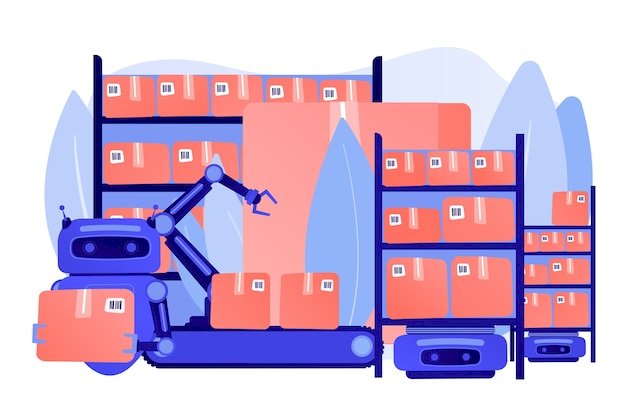AI has been on everyone's lips lately, especially when it comes to logistics services. It's becoming increasingly accessible and affordable for supply chain managers and logistics professionals. As costs decrease, AI offers efficiencies and opportunities that translate into growth and a competitive advantage for companies.
Among other advantages, AI in the logistics sector allows you to leverage underutilized data, such as automating processes and performing predictive analysis to reduce unforeseen events. This article aims to inform you about how we analyze the role AI can play in your supply chains and how it can improve your processes. It also shows you how it can help manage potential anomalies your company may face.
From simple processes to complex applications
In its simplest form, AI supports administrative functions and processes by detecting anomalies and exceptions. This helps expose problems before they escalate. For more complex applications, it provides third-party logistics service providers, shippers, and carriers with insights based on supply chain data analysis. This is more important than ever as we learn the lessons from the coronavirus (COVID-19).
While no one knows what tomorrow will bring, we can work today to build a smarter global supply chain. In fact, companies can leverage artificial intelligence to help transform the unpredictable into the predictable. In operational terms, AI is the foundation of intelligent route optimization, helping logistics companies coordinate resources and journeys more cost-effectively.
It often does this in real time and much more efficiently than humans could achieve. Better process management means more reliable predictions and, therefore, fewer surprises. Furthermore, the opportunity to improve both end-user communications and customer service contributes to the strength of relationship management.
The challenge of AI in logistics
According to a report on the logistics sector, one of the industry's biggest challenges and most underutilized assets is the large volume of structured and unstructured data. While few logistics service businesses cite the lack of well-curated data as their biggest challenge, we must admit that the quality of the data collected and stored is often low. The evolution of technology has helped companies process data from diverse sources. By understanding individual data sources by their function, you can create accurate, complete, and consistent records.
This way, you can harness the full potential of AI to generate practical and realistic results for creating new business opportunities. It's worth noting that with intelligent enterprise resource planning, companies have been able to update their systems through a process of rationalization, modernization, and transformation. Therefore, what you do now to overcome the challenges that data quality poses for AI will help you keep pace with your competitors.
Three ways AI can help you improve your logistics processes
To maximize the effectiveness of AI in your business, you must support it with quality data aligned with your business objectives. Here are three aspects to consider:
-
Leverage underutilized data assets: By applying AI to large volumes of data generated across supply chains, it can provide analysis and insights to identify trends where efficiencies can be achieved.
-
Automate and accelerate processes: The goal here is to eradicate/minimize errors and achieve cost savings. Extracting relevant information and accumulating knowledge allows for the automation of declarations and complements the human factor while creating efficiencies.
-
Predictive analytics to limit unforeseen events: By applying AI to route optimization and network management, you can plan for the future with informed planning. This machine learning-based tool can predict air cargo transit delays and enable proactive mitigation measures.
By analyzing 58 different internal data parameters, this machine learning model is currently able to predict increases and decreases in transit times up to a week in advance to effectively improve resource management. Along the way, be sure to establish business metrics for each solution, such as cost reduction, value creation, customer engagement, and many others. This is to achieve a significant quantitative impact, so you know how to recognize what's good.
AI and anomaly management
In addition to being instinctively understood, route planning is something that computers, unlike humans, can execute in real time. You can also better plan resources and even inform your customers of their shipment's arrival time. In fact, it's a fantastic application of AI.
But the benefit is only incremental, as it reduces transportation costs by a few minutes and, in the best-case scenario, you'll achieve a similar reduction in time, fuel, salaries, and maintenance costs. Logistics service companies are aware of the value AI brings in solving common problems in the sector, so it's time to embrace this technology and implement it in your business.






